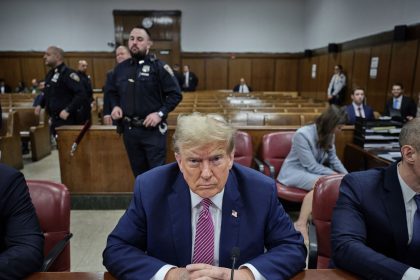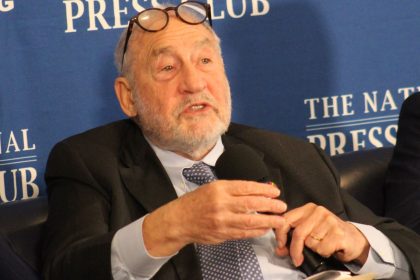Fractured GOP Faces Serious Reckoning Ahead of 2022
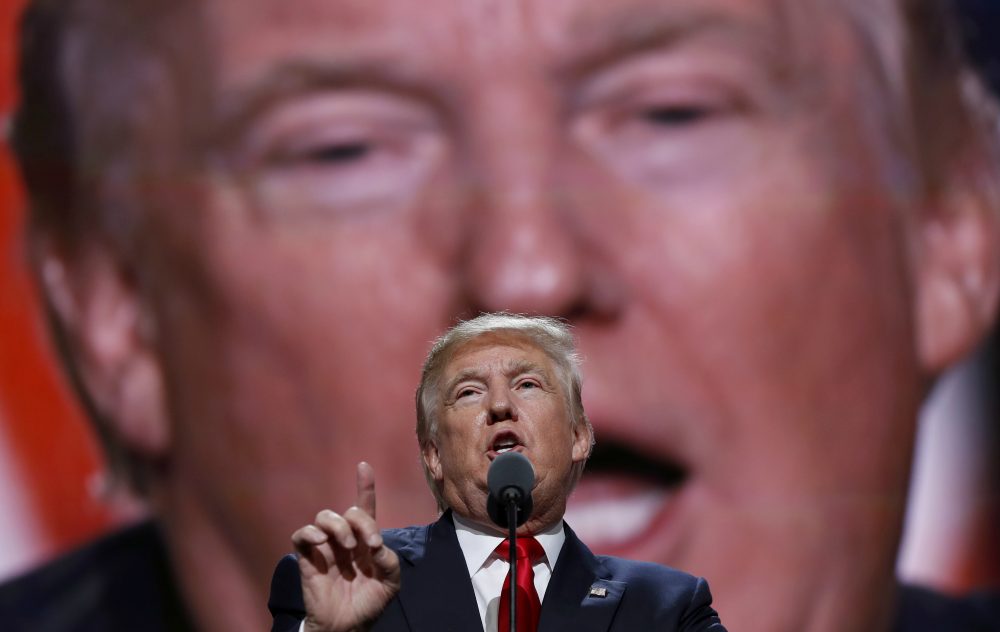
WASHINGTON – “It’s not supposed to be that way …” the chorus of an old Willie Nelson song begins.
It is a melody a lot of Republicans on Capitol Hill may be finding all too familiar.
Five months removed from the party’s losing the White House, this should be a time of laying out plans and charting a course for success in the 2022 midterms, a contest, history suggests, in which Republicans should be well-positioned to reclaim at least one chamber of Congress.
But 2021 has hardly started the way Republicans would have wanted.
A violent riot on Capitol Hill by former President Donald Trump’s supporters that left five people dead, President Joe Biden’s dramatic expansion of the coronavirus vaccine effort, and the passage of a $1.9 trillion COVID aid package, have all made it appear that the Grand Old Party is staggering toward the 2022 finish line before the race has even started.
And a recent surge of GOP departures in the Senate isn’t bolstering anyone’s confidence.
Earlier this month, Missouri’s Roy Blunt became the fifth Republican senator to announce he will not seek reelection, a retirement that gives Democrats fresh hope in preserving their razor-thin Senate majority.
Blunt’s exit is also a reminder of just how potent a force Trump remains in the nation’s politics.
He and his retiring GOP colleagues from Ohio, Pennsylvania, North Carolina and Alabama are all part of a generation on Capitol Hill who fought for conservative policies but sometimes resisted the deeply personal attacks and questionable governance that dominated the Trump era.
With all this in mind, the question looms – is the GOP going to remain “Trump’s party” or will the old guard and old-fashioned leadership reassert itself in time to right the party’s ship and pop the champagne corks in November 2022.
Party Discipline Frayed
In the late 1920s, the humorist and frequent political commentator Will Rogers observed, “I am not a member of any organized political party. I am a Democrat.”
Today on Capitol Hill and around professional Washington, many Republicans say the same sentiment now applies to them.
“I certainly think party discipline has dissipated over time,” one former Republican chief of staff told The Well News last week.
What disagreement exists on this point is not related to the assertion, but rather to when exactly things started going downhill for the leaders of both the Republican and Democratic caucuses in Congress.
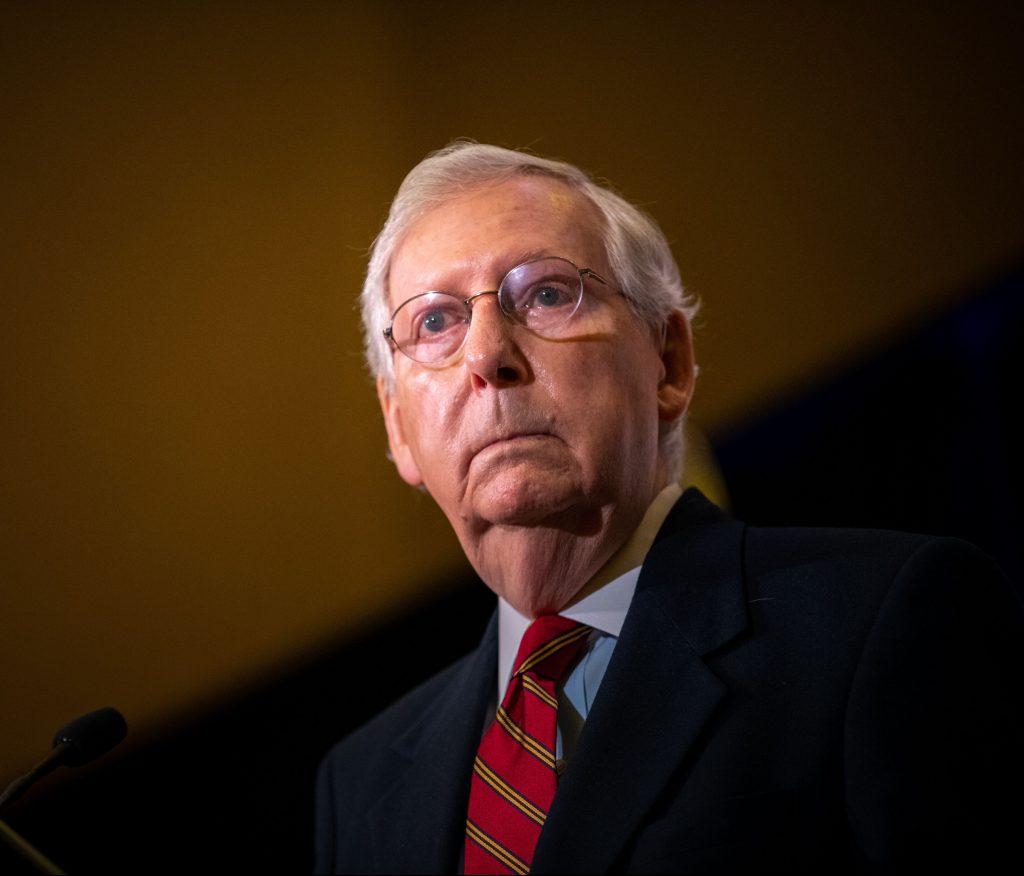
For instance, some will tell you things began to sour after the passage of the Bipartisan Campaign Reform Act of 2002.
Sponsored by Sens. John McCain and Russ Feingold, hence it’s better-known name, the McCain-Feingold Act, the law was the first major change to campaign finance rules since 1974.
McCain-Feingold was created to prohibit soft money contributions to national political parties, and limited campaign financing to hard money.
Soft money is unlimited funding collected by political parties intended for party strengthening, while hard money is donations directly made to a candidate’s campaign.
After McCain-Feingold, political parties could no longer directly fund campaign ads with soft money contributions; they now had to be paid for directly by campaigns using the hard money they raised.
Supporters of McCain-Feingold said the Act would rein in large contributions from corporations, labor unions and wealthy individuals and return to a system based on regulated, individual donations.
Opponents of the Act argued McCain-Feingold flew square in the face of the 1st Amendment, as it constrained corporations, unions and the wealthy to express themselves.
The argument paved the way, eight years later, for the U.S. Supreme Court’s game-changing decision in Citizens United v. Federal Election Commission.
That controversial decision allowed corporations and nonprofit organizations, trade unions and other associations to spend money independently on federal campaigns, either supporting or opposing candidates.
Shortly thereafter, a D.C. Circuit ruling set the stage for the emergence of super PACs, through which individuals and corporations could make unlimited contributions, so long as they don’t work directly with campaigns or political parties.
“Because of McCain-Feingold so-called soft money went away,” another Capitol Hill veteran said. “But you know, when there’s power in one place … and in a big place like Washington … people are going to want to invest in it and ensure their side has a say.
“Money is always going to find its place,” this insider continued. “And in this case, new, outside groups started popping up and their power eventually surpassed that of both the Democratic and Republican parties.”
The thinking goes that with each change in how campaigns were financed, the political parties lost a little bit more of their ability to enforce party discipline.
“The result, I think, is that we’re in a worse position now, from a party discipline perspective, than we’ve ever been,” said a former staffer, speaking on background.
“It’s been a race to the bottom,” he added, “because the race to raise money in small dollar increments has caused both parties to run to their extremes.”
Those who agree with this line of thought tend to cite two names, in particular, as examples of lawmakers who raised big dollars by mining the “fringes.”
One is Republican Rep. Matthew Gaetz, of Florida, whom Politico once described as a “proud Trump protégé.”
“Gaetz raises a ton of money by being an extremist and going on Fox News and the podcasts, and he raises a lot of it in under $50 increments,” a fellow Republican said. “On the Democratic side, AOC has been able to do the same thing.
It’s a matter of increments,” this individual continued. “What Gaetz and AOC have figured out is they can raise a lot of money in small dollar contributions, whereas moderates typically raise money through political action committees or … well, in larger increments.
“So, if you want to go the Gaetz or AOC route, you go on Fox News and say crazy things or go on CNN and say crazy things and then you send out an extreme email and recent history has shown people at those extremes, that base of support, will send you a lot of small-dollar contributions.”
“And this kind of activity is definitely a factor in eroding discipline,” he said.
The Genie That Can’t Be Put Back in the Bottle
But changes to campaign finance law and lawmakers’ response to the changes wasn’t the only factor cited by those dismayed by the current state of affairs on Capitol Hill.
The rise of social media has also played an outsized role, many say.
“When it came to messaging and getting one’s word out, there used to be a sorting mechanism within the media landscape,” said an individual who preferred to speak on background.
“Because of social media, the sorting mechanism no longer exists, and that has really made it hard on both sides of the aisle to enforce party discipline.”
Of course, no politician has exploited social media the way former President Donald Trump did before he wound up being banned by several platforms.
“If social media as a means of garnering small dollar donations was the flu, Trump was probably COVID,” said one observer.
And strangely, at a time when discipline was eroding in the halls of Congress, Trump’s abilities on social media enabled him to enforce a level of party discipline that hasn’t existed since McCain-Feingold.
Explained one Republican: “If you’re a middle-of-the-road Republican in a strong Republican district, your biggest concern is, ‘Can I win a primary?’ it’s not, ‘Can I win a general election?’ And the way to make sure you win a primary is to stay on the right side of Donald Trump.”
Another took that notion a step further.
“Don’t get caught up in the ‘party of Trump’ or ‘not party of Trump’ rhetoric,” they said. “The reality is most Republican members of Congress are not Trump people.
“But what happens is, they look at their districts and say, ‘If I am going to lose a primary, it’s going to be to someone more extreme than me.’ So they justify appearing to try to stay on the right side of Trump by telling themselves, ‘If I don’ get elected, the crazy guy down the street is going to get elected.’ It’s better for me to stay on Trump’s good side and be able to moderate things internally, than to allow my extreme neighbor to get elected to this strong Republican seat.”
Leadership Harder Than It’s Ever Been
As one can imagine, there’s widespread consensus that because of these dynamics, being a leader in the House and Senate today is harder than it has even been.
“In the past, if you were a leader and were confronted with a member who wasn’t willing to make a tough vote, you had some ability to control the money supply to that person and could bring them in line,” the former chief of staff said.
“Now a hold out can be confident they can raise money in other places,” he continued.
Those with a long view of Republican politics on the Hill say headaches are just part of the job of being the leader, and that former GOP speakers, like Paul Ryan and John Boehner, had just as many problems keeping members in line as Senate Republican Leader Mitch McConnell and House Republican Leader Kevin McCarthy, do today.
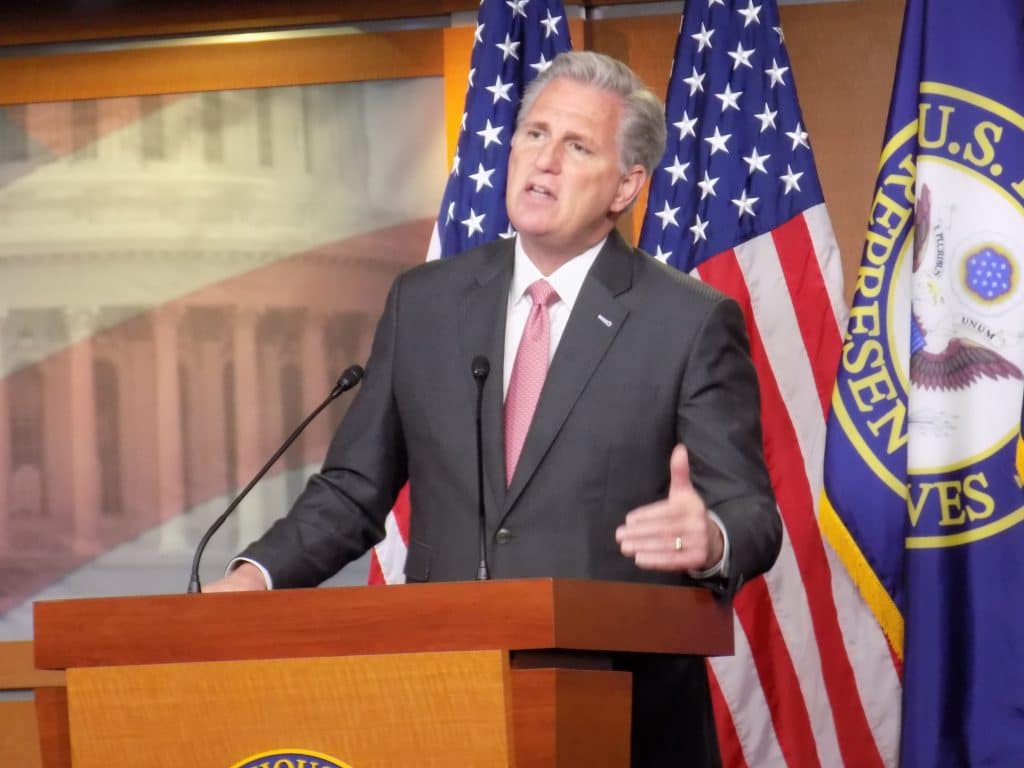
“There were similar challenges,” said an individual in a position to know. “But it wasn’t the same. Back then, the last time Republicans controlled the House, it was probably the beginning of the wave of dysfunction we see today. But it wasn’t the wave.”
“I think McConnell and McCarthy face a far bigger challenge than the leaders of the past,” he said.
A final question put to the individuals who agreed to share their insights for this article was whether McConnell or McCarthy or Pelosi, for that matter, will be able to reassemble the old toolkit for enforcing discipline or come up with another.
“I don’t know,” admitted one person who’s been on or around Capitol Hill for almost three decades. “That’s the biggest worry I have.
“A confluence of issues has gotten us where we are today, but in my mind, social media is 75% of the problem and it’s hard to see putting that genie back in the bottle.”
“When we were dealing with McCain-Feingold, the point that was repeatedly made was that water is eventually going to reach its own level … and as long as there is this much power in Washington, DC, people are going to try to influence it.
“With social media … we’re all hearing all this talk about reining it in and antitrust and all that, but I think what that talk does is push people further to the extremes,” he said. “You take someone off Facebook, they go to Parler or some other website we haven’t even heard about.
“I don’t think the solution is pushing people into less moderate debate forums. I think what we need to do is let free speech thrive in responsible forums.”
Rifts and Fractures Not A New Phenomena
Of course, there are those, let’s call them D.C. lifers, who say talk of unprecedented fractures in the Republican party is, while not silly, at least lacking in context.
After the Republicans lost the majority in the 1954 elections, they didn’t regain a majority in Congress for the next 40 years. It was the presidency that mattered most to the GOP in those years, and Republicans won the White House with regularity.
But on Capitol Hill a deepening divide was emerging between the traditionally corporatist, eastern seaboard Republicans, who tended to be much more liberal, and a growing number of more conservative, rural populists led by Robert Taft, Sr., then Sen. Barry Goldwater of Arizona, and ultimately Ronald Reagan.
It was Reagan, oddly enough, who finally cracked Democrats’ longtime hold on union support. By exemplifying a more populist view of America than his Democratic opponents, he was able to bypass union leaders, who largely dismissed him, and appeal directly to union workers.
Still, for all their differences, these factions had a common legislative philosophy – whether they were a country club Republican in Connecticut or a conservative in the Deep South – members of the GOP always insisted there should be a balanced federal budget.

The question was how to get there.
The Economic Recovery Tax Act of 1981, or Kemp-Roth Tax Cut, was premised on the idea that if you gave Americans a huge tax cut, the resulting economic growth would more than make up for the reduction in tax revenue.
Rep. Jack Kemp and Sen. William Roth, both Republicans, had nearly won passage of a tax cut during the Carter presidency, but the administration and many moderate Republicans believed the bill would result not in a balanced budget, but rather a huge increase in the deficit.
Reagan made passing the tax cut his top priority once he had taken office, and convinced conservatives like Sen. Phil Gramm to support the bill.
Meanwhile, many Senate Republicans signed on very reluctantly.
The legislation became a centerpiece of what some describe today as the conservative “Reagan Revolution.”
As the tilt toward the more conservative branch of the party became more profound during Reagan and President George H.W. Bush’s terms, other issues came to the fore, including the need for a strong national defense and social issues.
“Some Republicans couldn’t put up with all this and simply switched over to the Democrats; at the same time, a number of high-ranking Democrats, switched or considered going over the Republicans,” one individual said.
Then came the 1994 Contract with America and Republicans finally regained the House under Speaker Newt Gingrich.
Fueled by Americans’ unhappiness with a tax increase almost as soon as President Bill Clinton took office, not to mention Hillary Clinton’s work on health care, the GOP was suddenly ascendant.
Not only had Gingrich won the House, “but he, in my view, dragged the Republicans into a majority in the Senate,” one observer said
However, this caused some friction between the two chambers. House Republicans had grown far more conservative than their senate counterparts.
While a number of Republicans in the Senate saw the Contract with America as terrific and wanted to partner with the House, others said, “No, these guys are nuts,’” a prominent one-time Hill staffer said.
Soon, the signers of Gingrich’s Contract with America were having their own internal issues. And these were less about policy, than politics, a politics that had become increasingly about personalities.
Some rank-and-file members of the Republican caucus questioned why Gingrich should remain in control. Others said the question wasn’t who should lead the party, but how much control they should wield.
These questions, these feelings, festered and grew throughout the early 2000s, many interviewed for this piece said, stretching and tearing at the fabric of what it meant to be a Republican.
Against that backdrop, the party’s loss of majorities in both the House and the Senate, followed by the subsequent election of Democratic president Barack Obama, led to what some see as the irreconcilable breach in the GOP.
The result was the Tea Party movement, a group of conservative Republicans who thought moderates in their party were allowing the Obama administration to spend too much money and that the federal government was getting too much control of … well, just about everything.
Suddenly, the rupture between establishment Republicans and the party’s populist wing ruptured anew.
The divisions brought down two Republican Speakers, John Boehner and Paul Ryan, and saw the Tea Party reinvent itself as the House Freedom Caucus.
What distinguished the new guard Freedom Caucus from their Tea Party forebears was that Freedom Caucus members wanted to fight Democrats at every turn and be seen fighting them.
“It was a matter of a wing of the Republican party coming to feel the leadership wasn’t taking on the Democrats enough and wasn’t doing what little they did publicly enough,” said a Republican who worked on the Hill at the time.
“The situation manifested itself as this sort of argument, ‘Well, I’m more conservative than you are.’ And it wasn’t that they were more conservative on the issues; it was all about being more conservative in style,” he said.
“Soon, fighting and losing was somehow more important, somehow better, than winning through compromise,” the staffer continued.
“So the Republicans got control of the House in 2010, and after that, it was all about getting in the face of the Democrats, getting in the face of President Obama and the Obama administration. And the fights you saw, like the one over the debt limit and stopping continuing resolutions which led to a government shutdown, were less about policy difference, than about stylistic differences.
“And all of this set the stage, in some respects, for Donald Trump,” he said.
Time Will Tell
Privately Republicans on the Hill will tell you they enthusiastically shared many of Donald Trump’s policies because they weren’t really Trump’s policies at all.
“Trump wasn’t a policy man,” one said. “That simply wasn’t his forte. Instead, he picked policies from here and there and some things, like his nominees for the court or the 2017 tax cuts, were things any Republican would be proud to support.”
“The problem was stylistically, Donald Trump was wildly different from just about anything the Republicans had seen before,” he continued. “Some had such significant problems that they could no longer, in good conscience, be Republicans anymore.”
“Once again, it’s like when the Gingrich revolution imploded on itself,” an earlier commenter said. “There are these huge, apparently irreconcilable differences, and they are less about policy than style and personality.”
How will the Republican leadership ultimately deal with this? Time and again the answer was “Time will tell.”
When Trump was in power, Republicans in Congress were essentially forced to walk a fine line when it came to getting elected or re-elected. You couldn’t win without the support of the Trump people, the consensus said, but at the same time, you needed to appeal to a broader constituency to garner the support of the majority of people in your district.
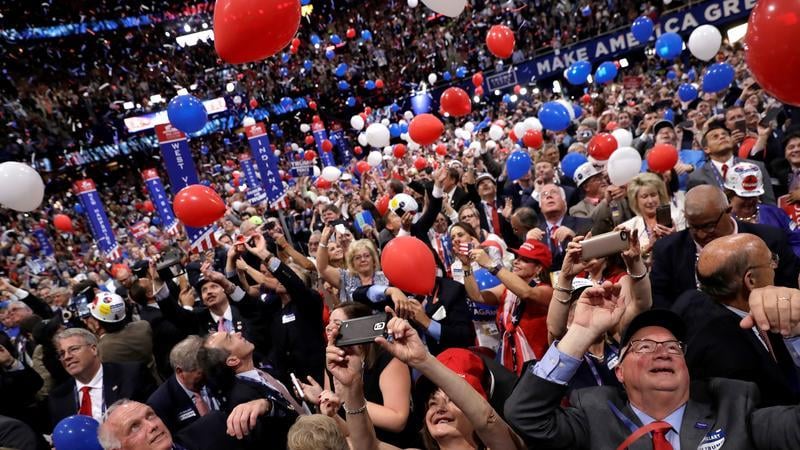
While Trump is now out of power, until there’s an election, no one will know if that is still true.
And Trump, being Trump, is sending mixed messages. In a speech at CPAC last month, he appeared to suggest he wanted the party to come together.
Weeks later, he was forbidding the Republican National Committee from using his name or image in fundraising, and days after that, it was announced the party will hold part of its upcoming leadership meeting at Trump’s home and resort, Mar-a-Lago.
“Trump obviously wants to make sure he’s keeping an option open for himself in 2024, but I’m not sure even he has a clear sense of what his future intentions are, other than being a big player,” one longtime Trump observer said.
But does that auger well for the party and its ability to get things done on Capitol Hill?
Already in his post-presidency, Trump has launched some pretty hard broadsides at both Senate Republican Leader Mitch McConnell and House Republican Leader Kevin McCarthy.
“If that continues, it will cause great difficulties,” the last speaker said, before adding, “but there is an answer for that.
“What the Republican party needs now is to get back to focusing on issues and forget these personality attacks. I think even Trump would say winning back majorities in the House and Senate is more important than anything right now.
“As the pandemic begins to subside, there are gapping differences between the way Republicans and Democrats believe we should proceed,” he said. “We need to get back to policy engagement and away from the personal insults and other stuff.”
“Trump was not the disease, though he made the disease worse, right?” said another former Capitol Hill staffer. “I think what Trump was – and is – is a symptom of broader societal programs, where people have ghettoized themselves either on social media, or, in a way, in their own neighborhoods.
“They’re talking to people that they agree with, rather than hearing other sides of the story. I don’t know that politicians are going to solve this program. It’s going to take a broader kind of civil engagement. I wish I could say it’s going to be easy. … that different leaders from different parts of the party will usher in a new era… But ultimately, the American people elect the people they elect.
“Ultimately, it’s up to the American people to decide what kind of government they want. I think it is incumbent upon civic institutions to continue to work to educate people on the importance of electing governments that are willing to compromise and not constantly fight. I think that’s where an important kind of American renewal will occur.”


















